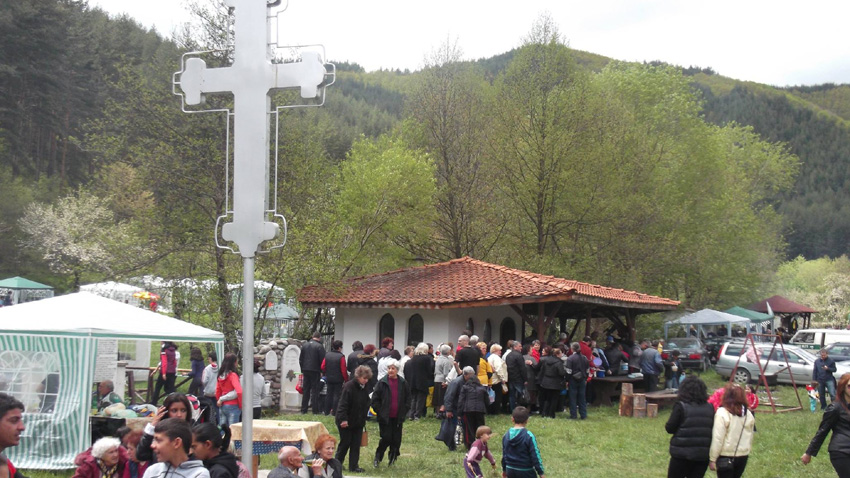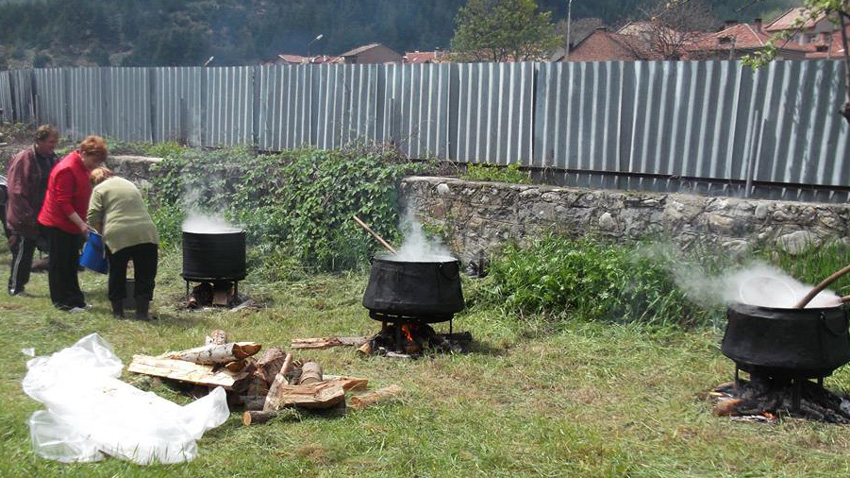Yakoruda is a town in southern Bulgaria, a place where three mountains meet - Rila, Pirin and the Rhodopes. Interestingly, when Greenwich Island in the Antarctic was being studied and mapped, one glacier was named Yakoruda Glacier - after the Bulgarian town. The glacier - 2.5 kilometers long and 4 kilometers wide - lying to the West of McFarlane Strait, was given that name by the Bulgarian Antarctic expedition “Tangra 2004/2005”.
There is an old Roman road cutting through Yakoruda that once linked Philipopolis (Plovdiv) and the Maritsa river valley with one of the big thoroughfares of the Roman Empire - Via Egnatia. Remains of two fortresses bear testimony to this fact - one is called Kalyata and the other Gradishteto. Many prominent figures were born in this small town - the voivods Todor Makedonski and Bogdan, writers Nikifor Popfilipov; Bulgarian poet Petko Rachov Slaveikov also has a bond with Yakoruda - his grandfather is from the town.
Yakoruda has unique folklore, local culture and traditions which people are still devoted to, observe and pass onto their children. There are Christians, Muslims and Roma living here and they all celebrate their feast days, help one another and respect their differences. Local folklore is a unique blend of Rhodope and Pirin music and the dialect is so distinct that learning it is more like learning a foreign language.

May 6, Gergiovden - St. George's day - is a very important family holiday here. Anyone who has moved away from Yakoruda or who is living abroad invariably comes back on this day, year after year, to celebrate with friends and family out in the open, in a locality called “St. George” where the old town of Yakoruda once stood.
Here is more about the customs and the emotion of Gergiovden from culturologist Vanya Palova, herself from Yakoruda:
“Gergiovden - St. George's day - is a feast day imbued with the national spirit, a day the people of Yakoruda celebrate every year. I often say that Gergiovden is the town's national day. People go to a locality known as Yakorushtitsa, where the first town was founded. There, the St. George church was erected over the remains of an old church, whose foundations have been preserved to this day. The whole country around is imbued with a warmth and a positive energy that brings the locals here at other times of the year as well. On the night of May 5, people get together in each neighbourhood, put on traditional clothes and stand in front of their houses. They pour water into big earthenware pots and each family brings a posy of geranium and a flower, tied together with a red thread - it is believed that the posies bring health and a bumper harvest. There is lots of singing and dancing; on the night of 5 May the pots are placed under a rose or another flower in bloom overnight. When they return from the meadows on St. George's day, people get together again and each retrieves his or her posy.”

A curious local ritual is still practiced here - women paint eggs, just as they do at Easter, but they only use red dye, then they take the eggs to the feast. These eggs are used by children in a game to divine who will have more health and more luck throughout the year - the boy or the girl who throws the egg highest. But let us go back to the preparations for the votive meal - Vanya Palova:
“Sacrificial animals are collected on 5 May in the Sts. Cyril and Methodius church yard - the people here bring lambs. Each person, whatever their religion, comes here and brings a lamb of theirown volition. I don't know of any other town or village in the country where so many sacrificial animals are collected - 40-50 every year. Early on St. George's day morning cauldrons are got ready for the meal in the locality known as Yakorushtitsa. Men and women come here and start cooking - they all enjoy being together and cooking together. There is no dish more delicious than the dish cooked on this feast day. Many of the people have their own spots where different generations have been meeting nobody knows for how long. But they all know where to put the food they have cooked and where to lay the table. There is music and everyone has lots of fun. The people come here wearing traditional costumes and the horses are primped and preened. Come nightfall they all mount their horses or get into horse-drawn carriages and pour into the central square in Yakoruda where they continue singing and dancing late into the night.”
English version: Milena Daynova
The residents of Pleven (Central North Bulgaria) will bid farewell to 2024 with a Christmas Town and meetings with Santa Claus. This year's festive program of the local municipality will start on December 2 with the Christmas tree lighting ceremony at..
An innovation for the treatment of diabetic foot ulcer using the patient's own tissue and artificial intelligence has been implemented at the University Multi-profile Hospital for Active Treatment-Burgas. Bulgaria is the fourth European country to start..
Over 3.5 million Ukrainians have arrived in or passed through Bulgaria since the beginning of the war. Nearly 200,000 people have found temporary shelter in the country, announced Anna Tertychna from the Ukrainian Embassy in Bulgaria. She..

+359 2 9336 661
